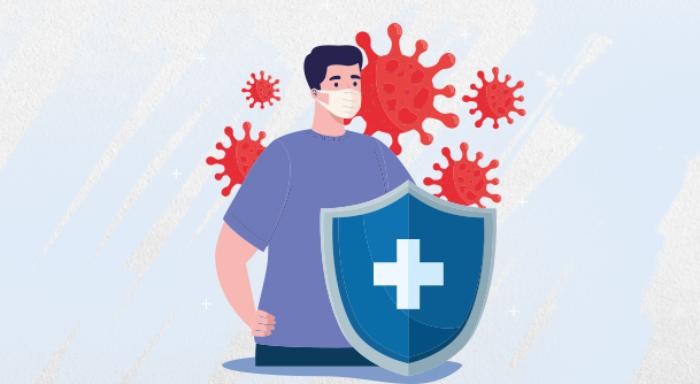What Happens to Company Health Insurance When You Quit? | Edelweiss Life
Blog Title
4730 |
8/7/25 11:22 AM |
Changing jobs may be an exciting opportunity to advance your career. However, it has its fair share of setbacks. In the rush to update your resume or plan that long-overdue vacation, there’s one thing you may overlook. That is health insurance.
Are you covered under your employer’s group health plan? Then, leaving the job means leaving your safety net. Without proper planning, a single medical emergency could disrupt your long-term savings plan. Here’s why you must plan for your health insurance before resigning. Learn how to ensure continuous coverage during the transition.
How Leaving Your Job Affects Your Health Insurance?
In India, most employees are covered under group health insurance policies provided by their employers. These plans often include benefits like hospitalisation coverage, maternity benefits, and even outpatient treatments. But this coverage is tied to your employment. It usually ends on your last working day or at the end of the month. This typically depends on company policy.
When you resign, it's often assumed the insurance ends immediately. But did you know some insurers allow conversion to an individual policy?
When you convert your group health insurance to an individual policy, you open the door to several valuable benefits that are often missing in group plans.
First, you have the flexibility of customising your policy coverage depending on your and your family's unique requirements. For instance, if you want coverage for maternity-related expenses or outpatient treatments, you can select a policy that includes those features.
Individual health insurance comes with extra benefits. You can get a no-claim bonus, which increases your insured sum every year you don't make a claim. Group policies usually don't offer this.
You can also add critical illness riders, daily hospital cash, or even dental and vision cover, depending on the insurer. These add-ons make your policy more complete. They also help you handle real-life health expenses that your employer's plan might not cover.
Need to Plan for Health Insurance Before You Resign
Here’s why planning ahead is important for you:
- Avoid Coverage Gaps:
A gap in health insurance coverage can leave you financially unprepared for emergencies like accidents or sudden illnesses.
- Buying Insurance After Quitting May Be Tougher:
Once you leave your job, your income flow may be unstable. This is specifically if you're switching your career or starting a business. This could affect your ability to pay premiums or get approved for a policy, particularly if any health issues arise in the interim.
- Pre-existing Conditions:
If you have a chronic condition or ongoing treatments, losing coverage could disrupt your medical care. Individual policies may impose waiting periods for pre-existing conditions.
- Tax Benefits:
Section 80D of the Income Tax Act allows for tax deductions on health insurance premiums. Losing coverage means missing out on these benefits.
- Family Needs:
If your dependents are covered under your employer’s group plan, losing this coverage could leave them vulnerable.
Options to Maintain Coverage After Leaving Your Job
There are numerous strategies to ensure uninterrupted health insurance coverage when migrating between jobs. This includes:
- Port Your Group Health Insurance:
Many insurers allow employees to convert their group health insurance into an individual policy within 30 days of leaving the job. According to the IRDAI standards, you can switch from group to individual coverage with the same insurer.
You must notify the insurer at least 45 days before your resignation. If you miss that, there's a five-day post-exit window to submit your request. The insurer will assess your application (underwriting), and as per IRDAI, they must inform you within 15 days of the request.
This means:
- You won’t have to restart the waiting period for pre-existing diseases.
- You’ll be covered as an individual, even after you leave the company.
- Buy an Individual Health Insurance Plan:
If porting isn’t an option or doesn’t suit your needs, consider purchasing an individual plan. Compare policies online to find one that fits your budget and requirements.
You can consider add-ons like maternity cover or OPD if relevant. There are numerous platforms that offer online insurance. This makes it easy to explore options and buy policies online.
- Explore New Employer’s Policy:
If you're starting another job soon, check beforehand if the new company offers health insurance. If there’s a waiting period before coverage begins, having a personal policy as a backup is wise.
- Consider Family Floater Plans:
If you have dependents, look into family floater plans that provide comprehensive coverage for all members under a single premium.
Factors to Consider Before Making the Switch
Before finalising any health insurance option, keep these factors in mind:
- Coverage Needs:
Assess your medical history and future needs. For example:
- Do you require maternity benefits?
- Are there ongoing treatments for chronic conditions?
- Premium Costs:
Premiums for individual plans are generally higher than those for group policies because they consider factors like age and medical history. Compare the premiums across different providers so you can find the best affordable option.
- Waiting Periods:
Most policies have a 2–4 year waiting period for pre-existing conditions. If you’ve already served it under a group policy, porting helps retain those benefits.
- Don’t Confuse It with Life Insurance:
Many people mix up life insurance policy benefits with health coverage. They serve different purposes. While a life policy supports your family financially after your death, health insurance protects you while you’re alive and need medical care.
Takeaway
Leaving a job is a significant life event that requires careful planning. Health insurance plays a crucial role in safeguarding you and your family from unexpected medical expenses during this transition.
Whether you choose to port your existing policy, buy an individual plan online, or explore options through your new employer, take proactive steps to save yourself from financial stress later.
So, before handing in that resignation letter, take time to understand your health insurance needs and how they align with your overall savings plan . Make informed decisions to secure both your health and your financial future.





